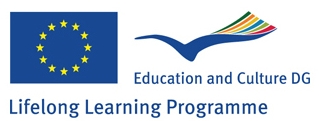You are here
Motivation
According to Eurostat projections the share of people aged 65 years or over in the total EU population is projected to increase from 17.1 % to 30.0 % and the number of 65 years old is projected to rise from 84.6 million in 2008 to 151.5 million in 2060. Similarly, the number of people aged 80 years or over is projected to almost triple from 21.8 million in 2008 to 61.4 million in 2060.
(http://epp.eurostat.ec.europa.eu/statistics_explained/index.php/Populati...)
These figures impel the partners to believe that there is a need for persons belonging to different generations to stay in touch to avoid future clashes. This necessity derives directly from the partners’ on the field experience where IG issues, involving children, parents, teacher-trainers and seniors, have to be addressed (see D.5 European value).
From their contacts with these age groups they recognise that in many areas of life, including education, there is a vital necessity for young and old to understand each other and to become aware of the difficulties each generation has to surmount. Competition for jobs should not be determined by the age factor in the employment market and the technological divide between generations we have witnessed from experience and observation during our workshop activities should not be considered as a fatality.
As the values system evolves giving ever increasing emphasis to innovation and speed, toppling traditions and father figures from their pedestals, there is most certainly a requirement to create educational situations where the debate can at least be possible. At the relationship level and in families it is also important for social cohesion that children, parents and grandparents have practical opportunities for telling each other what they know, what they have discovered and learnt. The partners believe that intergenerational learning and teaching situations are still far too scarce and that intergenerational solidarity should be practically implemented on a wider scale notably by encouraging cooperation between organisations of different sizes in the various sectors of education.
In Belgium, Hannut, Zebra sets up and monitors thematic workshops, reminiscence groups and study circles answering the demands of local institutions engaged in the public and private sectors of education and social support, involving staff, learners, trainers and carers of all ages. In Estonia, Narva, the issues resulting from cultural differences in lifestyles between young people seeking employment, parents and institutions offering jobs have to be addressed. In Italy, Fasano, at the territorial Centre for permanent education (CTP) staff, students and institutional members with ages ranging from 18 to 60 take part in common educational activities and courses, having to handle generation gaps of different types (culture, interests, social origins, etc.).
In Luxemburg, Ettelbruck social contacts between local senior and youth organisations are often problematic and there is scope for generations to learn from each other. In Poland, Warsaw, specific teaching methods adapted to the blind and partially sighted persons of all generations are required to help them overcome isolation and gain access to knowledge. In Portugal, Famalicão, a new type of course for adults was created ( EFA – Adult Education and Formation Courses) and later enlarged to include secondary level students, mixing persons of very different ages.
In Spain, Alicante, UPUA wishes to promote and encourage relationships between all the students and trainers of the Permanent University whatever their age through participation in multiple cultural and educational activities. The high priority is to develop appropriate learning and teaching styles for seniors who wish to acquire and share knowledge in the field of ICT.
In Turkey, at the Beypazarı Kız Teknik ve Meslek Lisesi formal and non-formal education programmes draw together children and adults who have to share the same premises in several departments such as food and drink services, pre-school and early years care and education, textiles and technologies of ready-made clothes.
All partners want their adult learners and staff of different ages and horizons to be able to learn from each other about their fields of excellence They hope to diminish the levels of confusion and anxiety of their learners afflicted with age complexes and to break down stereotyped perceptions.
This is particularly important for persons having to cooperate in particular situations (the work place, learner – teacher relationships, services and help to persons in need, carers and staff in residential homes and hospitals, etc.). They believe that: - developing a common ground generational learning experience will help different age groups not only to know more about each other’s lifestyles and to facilitate two-way-transfer of knowledge and experience but also will help them to learn about the obstacles each generation group is confronted to. - the relationship factor involving both learners and staff in intergenerational teaching and learning creates innovative and appropriate teaching methods more in phase with learners’ needs.
Theme by Danetsoft and Danang Probo Sayekti inspired by Maksimer

